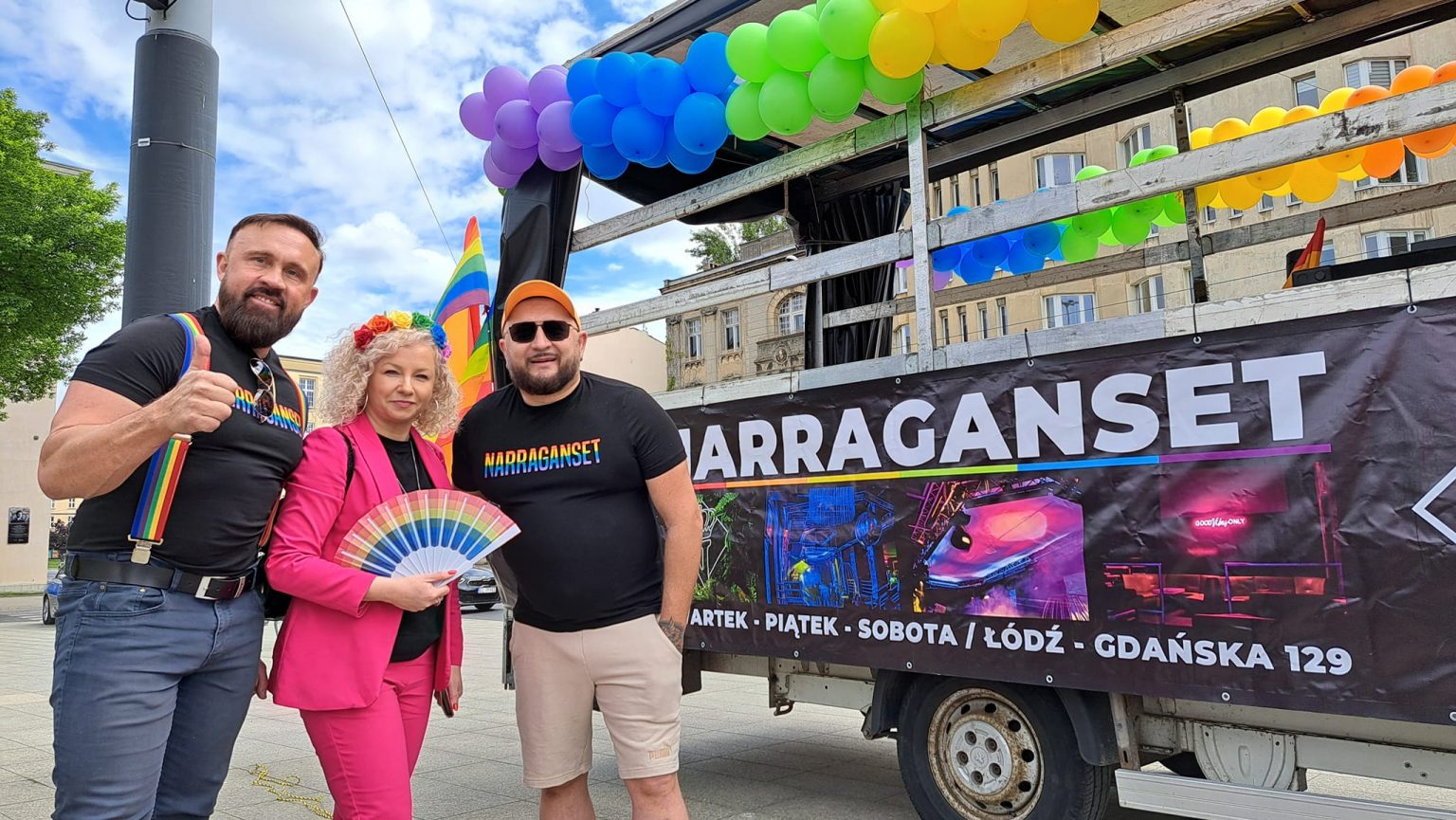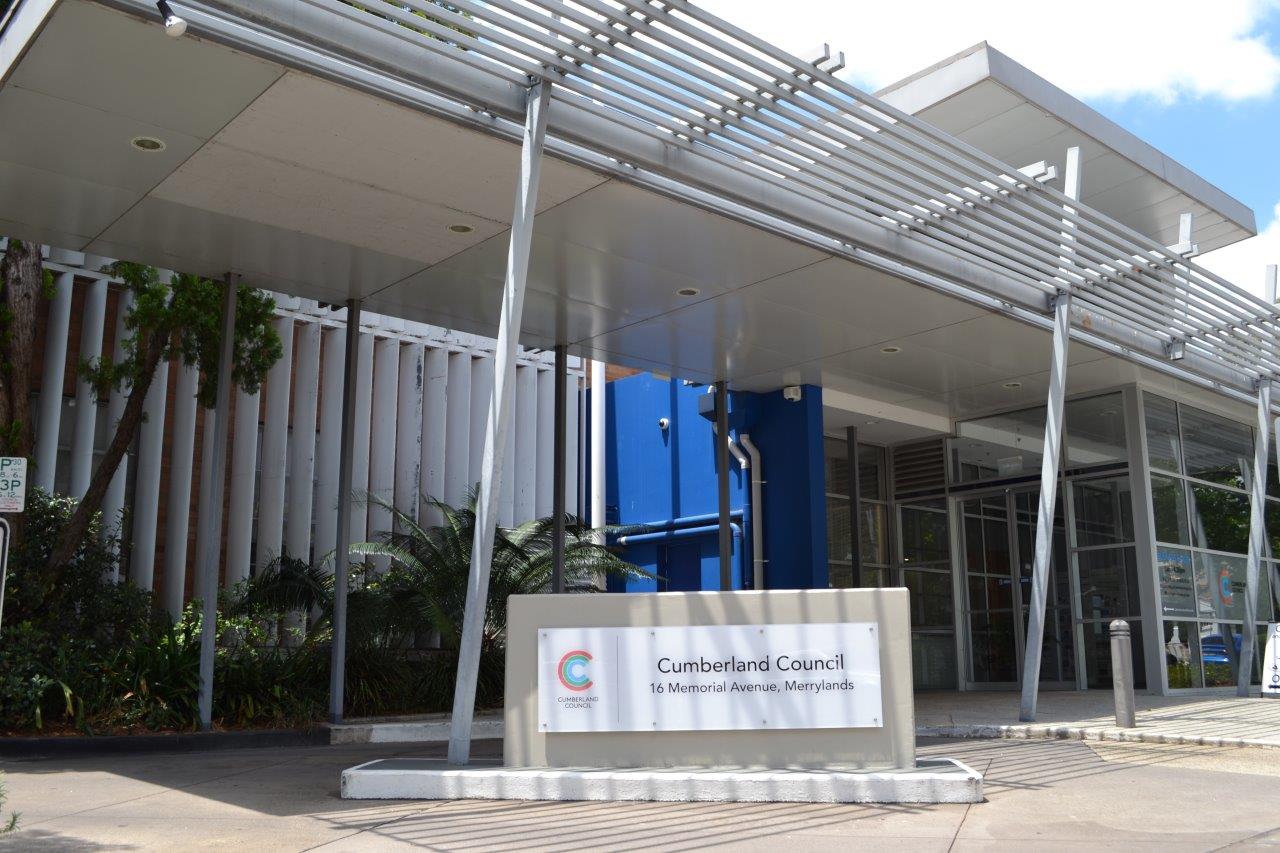World
Out in the World: LGBTQ news from Europe and Asia
Nonbinary Swiss singer Nemo won this year’s Eurovision

EUROVISION

Swiss singer Nemo won the Eurovision Song Contest with their operatic pop-rap song “The Code” about their journey to accepting their nonbinary identity.
“I went to hell and back, to find myself on track, I broke the code,” Nemo sang in the chorus of their winning song.
Dressed in a frilly pink blouse and miniskirt, Nemo dazzled the audience at the Malmö Arena in Sweden, home to last year’s winner, Loreen.
Nemo’s win is the first win for Switzerland since Canadian singer Celine Dion competed under the Swiss flag in 1988.
The Eurovision Song Contest is an annual competition held by the European Broadcasting Union since 1956, in which representatives of all member states present original songs. The entrants are voted upon by a panel of judges and by viewing audiences, who award points to their 10 favorite performances.
Over the years, the competition has become well-known as a camp spectacle and a favorite event for the European LGBTQ community, with many high-profile queer competitors and winners, including Austrian drag queen Conchita Wurst, who returned to this year’s show to perform a tribute to ABBA, who won the competition for Sweden with the song “Waterloo” in 1974.
This year’s UK entrant was nonbinary performer Olly Alexander, formerly of the band Years & Years. Their song “Dizzy,” a homoerotic pop-dance track that featured a quartet of dancing boxers, finished in 18th place with only 46 points, after receiving no points from the voting audience.
This year’s competition was not without controversy.
The venue was met with a large protest demanding that Israel, which has competed in Eurovision since 1973, be removed from the competition due to the ongoing war in the Gaza Strip. Additional security measures were put in place for the competition
Israel’s entrant, Edan Golan, had been a favorite early in the competition, but her song “Hurricane” finished fifth. The song had also drawn controversy, and Golan was ordered to change the title and lyrics by the EBU from “October Rain” due to its references to the Oct. 7 attacks on Israel.
Golan travelled with agents of the Israeli Security Agency Shin Bet after death threats were made on her social media.
Additionally, Dutch performer Joost Klein was disqualified ahead of the final competition after an alleged altercation with a female production staffer that has led to a police investigation.
UNITED KINGDOM

Actor Ian Gelder, best known for his role as Kevan Lannister in the HBO series “Game of Thrones,” has passed away at age 74, five months after he was diagnosed with an aggressive form of cancer.
Gelder’s husband, Ben Daniels, announced his passing in a post on Instagram on Tuesday.
“It is with huge, huge sadness and a heavy heart broken into a million pieces that I’m leaving this post to announce the passing of my darling husband and life partner Ian Gelder,” Daniels wrote in the caption of a photo taken of the couple at Christmas, shortly after Gelder’s first round of treatment for his cancer.
“He was my absolute rock and we’d been partners for more than 30 years. If we weren’t together, we spoke to each other every day. He was the kindest, most generous spirited, and loving human being. He was a wonderful, wonderful actor and everyone who worked with him was touched by his heart and light,” Daniels wrote.
Gelder was diagnosed with bile duct cancer in December. Such cancers are often not detected by health care providers until they have spread to other parts of the body.
Gelder had a long career in film and television and on the British stage, frequently appearing in London’s West End and Shakespeare’s Globe Theatre.
Among his numerous television appearances was a stint on the “Doctor Who” spinoff “Torchwood,” and the celebrated UK sitcom “Absolutely Fabulous.”
POLAND

Declaring that she would “go to hell and make a deal with the devil” to advance the rights of Poland’s LGBTQ community, Equalities Minister Katarzyna Kotula joined the Equality March in Łódź, the country’s fourth-largest city, on May 11.
The march was the 13th edition of the event, and the first time it had been attended by a government minister.
Last year, Poland elected a new government coalition of center-left leaning parties that have pledged to support LGBTQ rights, a sharp contrast to the right-wing, LGBTQ-hostile government that preceded them.
Still, the government has been slow to act on its stated promises to the LGBTQ community, including a law on civil unions, a ban on hate speech, and a gender recognition act, amid squabbling from more conservative members of the coalition.
Kotula has said that she’s waiting to introduce the civil union bill until she can get agreement from the coalition on key sticking points, including adoption rights.
“For civil partnerships, for marriage equality, for the Gender Reconciliation Act, for dignity and human rights for the LGBT community, I will go to hell and make a pact with the devil. I promise that when we meet here next year, at least some of these demands will be implemented,” Kotula said at the march. “I will do everything to take care of your dignity and your safety.”
The organizers of the march, the Equality Factory, are calling for even greater rights, including full marriage equality, abortion and contraception rights, comprehensive sex education in schools, and facilitation of medical treatment for gender transition.
“We are marching because words about equality cannot be thrown around. We are not a bargaining chip. We were promised something and the election promises should be fulfilled. The most important requirement to be implemented is the act on civil partnerships. This is not only about LGBTQ+ people, but also about protecting heterosexual people in relationships, because there is no such thing as cohabitation in Polish law. This should be important for all Poles,” Ida Mickiewicz-Florczak from the Equality Factory told the Polish news site Odaka.
Even if the civil partnership law passes through Parliament, it may face a veto from President Andrzej Duda of the opposition Law and Justice Party, which has vociferously opposed LGBTQ rights. So far, Duda, who will be in office until presidential elections in May 2025, has not indicated how he will act on the bill, stating he’s waiting until it is introduced to comment.
SOUTH KOREA

The Seoul Queer Culture Festival has found a new home after two years of struggle with the city council repeated denying permits for the annual festival.
The Queer Culture Festival had been held at Seoul Plaza at City Hall ever since 2015, but last year it was denied a permit, which the conservative-leaning city council decided to give to a Christian youth concert instead. This year, the city council has announced that the plaza is being used for a outdoor library all through spring and summer, effectively blocking all event applications.
“I think Seoul city is focusing on events that only suit its taste,” Yang Sun-woo, chief organiser of the festival, told Reuters. “If Seoul cared about LGBT people, they would have understood the significance of the event.”
In response, organizers of the Queer Culture Festival have decided this year’s edition will take place on a several blocks in downtown Seoul, which only required the permission of police, rather than city council.
The festival, which takes place over two weeks in June, kicks off with a parade on June 1 and will feature a queer film festival, live performances, and 60 booths for vendors and interactive events.
For its part, Seoul City Council denies that anti-LGBTQ discrimination played a part in its decision to twice deny permits for the event.
The city government said it is “always listening to voices and providing necessary support to protect human rights of LGBTQ people as members of society,” in a statement.
The Queer Culture Festival was also denied a permit by the Seoul History Museum.
The U.S. Embassy in Seoul will also support the event, as it has in previous years.
“As in past years, embassy representatives will join in Pride events worldwide, including here in the Republic of Korea, to raise awareness of the challenges faced by LGBTQI+ individuals,” the embassy told Reuters in a statement.
AUSTRALIA

Cumberland in New South Wales drew international headlines this week after its city council voted 6-5 to ban books on same-sex parenting from local libraries. Four council members were not present for the May 1 vote.
The motion amends the council’s library strategy to order “that council take immediate action to rid same sex parents books/materials in council’s library service.”
The move from the council, which represents around 250,000 people in the western suburbs of Sydney, was swiftly condemned by residents, LGBTQ leaders, and representatives of the state government.
New South Wales Attorney General Michael Daley has referred the motion to the state’s Anti-Discrimination Board for advice, while Arts Minister John Graham has warned the council that the new policy directive puts state library funding for the council in jeopardy, as it would breach public library guidelines. He’s asked council to reconsider the ban.
“It’s a terrible message to send, to have this councilor importing this US culture war into our country and playing it out on the shelves of the local library,” Graham said on a morning television show. “I think the community expectations are clear — the local councilor should be coming around to pick up their bin, not telling them what to read.”
Cumberland’s local council is dominated by the relatively LGBTQ-friendly Australian Labor Party, but the motion from Our Local Government Party Councilor Steve Christou carried with support from Liberal-Party-affiliated Independents and a single vote from a Labor councilor, who has since been condemned by the party.
The move comes just a few months after the same council voted to ban drag queen storytime events at local libraries.
Christou says the motion was inspired after he received complaints from constituents who saw the book “Same-Sex Parents” by Holly Duhig on display in the children’s section of a library. The book explores what it’s like to have two moms or two dads from a child’s perspective.
During the debate on the motion, Christou alleged that the book “sexualized” children and repeated dog-whistle allegations against queer people and parents.
“We’re going to make it clear tonight that … these kind of books, same-sex parents books, don’t find their way to our kids,” Christou said, according to the Guardian. “Our kids shouldn’t be sexualized.”
Christou said the proposed amendment was “for the protection and safety of our children.”
“Hands off our kids,” he repeated.
Christou has said the amendment was demanded by his community, which he says is a “very religious community,” despite the fact that a petition against the amendment garnered more than 10,000 signatures in 24 hours.
“This community is a very religious community, a very family-orientated community.
“They don’t want such controversial issues going against their beliefs indoctrinated to their libraries. This is not Marrickville or Newtown, this is Cumberland City Council.”
The petition was launched by a Cumberland area grandmother to what she describes as a “rainbow family” Caroline Staples. Staples will present her petition to the council on May 15.
India
Trans students not included in new India University Grants Commission equity rules
Supreme Court on Jan. 29 delayed implementation

The University Grants Commission is a regulatory body under India’s Education Ministry that is responsible for coordinating and maintaining standards in higher education. The University Grants Commission Equity Regulations, 2026, aim to address discrimination and promote the inclusion of lower castes, tribes, people with disabilities, those who are economically disadvantaged, and other marginalized groups in higher education.
The regulations quickly triggered controversy.
Students, faculty and civil society groups criticized them, largely around concerns about potential discrimination against students and the absence of certain procedural safeguards. Yet, even as the debate intensified, there was little public discussion about the lack of explicit mention of transgender students in the framework. The omission, though not central to the overall controversy, raised questions among some advocates about the scope of the regulations and who they ultimately protect.
According to the All India Survey on Higher Education, trans student enrollment in universities and colleges rose from 302 in the 2020-2021 academic year to 1,448 in the 2022-2023 academic year, reflecting a sharp increase but still representing a very small share of India’s overall higher education population.
The Supreme Court in its 2024 National Legal Services Authority v. Union of India affirmed trans people are entitled to full constitutional protection, including equality, dignity and access to education, and directed governments to treat them as a socially and educationally disadvantaged group eligible for quota-based protections in education and public employment. The ruling recognized gender identity as integral to personal autonomy and held that discrimination on this ground violates fundamental rights under Articles 14, 15, 16, and 21.
Against this legal backdrop, the regulations do not explicitly reference trans students, an omission that has drawn attention in discussions on how constitutional protections are implemented within higher education institutions.
In the Indian constitutional framework, Articles 14, 15, 16, and 21 collectively form the foundation of equality and personal liberty.
Article 14 guarantees equality before the law and equal protection of laws; Article 15 prohibits discrimination on grounds such as religion, race, caste, sex or place of birth; Article 16 ensures equality of opportunity in public employment; and Article 21 protects the right to life and personal liberty, which courts have interpreted to include dignity, autonomy, and access to education. These provisions underpin judicial recognition of protections for marginalized communities, including trans people, within public institutions.
Judicial and policy frameworks in India have increasingly recognized the need for institutional support for trans students, underscoring the contrast with the absence of explicit mention in the University Grants Commission Equity Regulations, 2026, regulations.
The Madras High Court has directed educational institutions to implement measures such as gender-neutral restrooms, mechanisms to update name and gender in official records, inclusion of trans identities in application forms and the appointment of LGBTQ-inclusive counselors for grievance redressal alongside enforcement of the Transgender Persons (Protection of Rights) Act and its Rules.
Policy instruments have echoed similar priorities.
The National Youth Policy 2014 acknowledged trans youth as a group facing social stigma and called for targeted interventions, while the National Education Policy 2020 emphasized reducing dropout rates and ensuring equitable access to education. The University Grants Commission itself has previously indicated that universities should adopt affirmative steps and institution-specific plans to support trans people, making their absence from the current regulatory text more pronounced.
Research and policy analyses have consistently documented structural barriers faced by trans students in India’s education system. The Center for Development Policy and Practices and other academic studies note that discrimination, bullying, and the absence of gender-sensitive infrastructure contribute to high dropout risks among trans students in both school and higher education. Census data underscore this disparity.
The 2011 Census recorded a literacy rate of about 56.1 percent among trans people, significantly lower than the national average of roughly 74 percent, reflecting long-standing barriers to access and retention in formal education.
The controversy intensified after the Supreme Court on Jan. 29 stayed the implementation of the University Grants Commission Equity Regulations, 2026, and agreed to examine their constitutional validity.
A bench led by Chief Justice Surya Kant observed the regulations raised serious legal questions, including concerns that some provisions appeared vague and potentially open to misuse, and sought responses from the federal government and the University Grants Commission. The court directed that the earlier 2012 anti-discrimination framework would remain in force in the interim and listed the matter for further hearing, signalling the need for detailed judicial scrutiny.
Public and political reactions followed, with student groups, academics, and political actors divided over the stay and the broader policy direction. The federal government, led by Prime Minister Narendra Modi, maintained the regulations were intended to address caste-based discrimination and strengthen accountability within higher education institutions even as debate intensified nationally.
The regulations go beyond paperwork. They require universities to create on-campus equity monitoring teams and designated officers responsible for identifying incidents of discrimination, receiving complaints and reporting them to institutional committees for action. However, while the framework spells out protections for certain caste and social categories, it does not explicitly include trans students within this structure. In practice, that absence could leave uncertainty about whether routine monitoring, reporting and grievance mechanisms would extend to them with the same clarity, particularly in campuses where implementation already varies widely.
The regulations also prescribe penalties for faculty and staff found responsible for discrimination, including suspension, withholding of promotions, or termination of service following institutional inquiry. For students, disciplinary action may range from warnings to suspension depending on the severity of the misconduct. Where an incident amounts to a violation of existing statutory or criminal law, institutions are required to refer the matter to law enforcement authorities, placing responsibility on universities to escalate cases beyond internal mechanisms when warranted.
The regulations do not create new criminal offences but require institutions to escalate cases to law enforcement when conduct violates existing statutes. These may include the Scheduled Castes and Scheduled Tribes (Prevention of Atrocities) Act, relevant provisions of the country’s penal code, such as criminal intimidation, assault or sexual harassment, disability rights protections, workplace harassment laws, and statutes addressing campus hazing. The framework is therefore stringent: campus inquiries can lead to disciplinary action, and, where legal thresholds are met, mandatory reporting to police. In the absence of explicit mention of trans students within the framework, questions remain about how individuals from the community would navigate complaint systems, interact with authorities, and access consistent institutional protections under these processes.
The Scheduled Castes and Scheduled Tribes (Prevention of Atrocities) Act, 1989 is among India’s strictest anti-discrimination criminal laws and applies to students, staff and any individual accused of caste-based offences. It criminalizes acts such as intentional insults or humiliation, social exclusion, threats, physical assault and other forms of harassment directed at members of specific castes or tribes. Offenses under the law can lead to arrest, non-bailable charges in several categories, and imprisonment that may extend from months to years depending on the severity of the conduct, along with fines. The law also restricts anticipatory bail in many cases and mandates prompt registration of complaints, which is why it is often viewed as a powerful legal safeguard for marginalized communities while also being regarded by some as carrying serious legal consequences once invoked.
Nishikant Dubey, a member of India’s ruling Bharatiya Jana Party, welcomed the Supreme Court’s decision to stay the regulations, stating the judges had acted appropriately and that the matter required careful legal scrutiny. Indrani Chakraborty, an LGBTQ rights activist and mother of a trans woman, told the Washington Blade the University Grants Commission Equity Regulations, 2026, is a welcome step toward supporting vulnerable students.
“The saddest part is that the transgender community is excluded which is very unfair,” said Chakraborty. “Presently, the transgender community is the most vulnerable and not mentioning the community in the act. I regard it as the biggest discrimination and will never help in changing the scenario of the transgender students.”
Chakraborty told the Blade the trans community, as a minority facing persistent social stigma and taboo, is often overlooked and must repeatedly advocate even for basic rights.
“I believe that grouping of individuals under caste, religion, gender, etc., is the base of discrimination. Personally, I disagree with naming and tagging any individual. Equity over equality is the need now for the most vulnerable. And the transgender community faces discrimination the most. Discrimination against any individual in educational institutions needs immediate attention and preventive measures should be necessarily implemented.”
Chakraborty said the absence of explicit inclusion of trans students amounts to discrimination, undermining equality in education and violating human dignity.
Ankit Bhupatani, a global diversity, equity and inclusion leader and LGBTQ activist, told the Blade that debate around the University Grants Commission Equity Regulations, 2026, has largely centered on concerns raised by relatively privileged students, particularly those in the unreserved category, while communities with limited visibility in higher education have received far less attention. Bhupatani also referenced the All India Survey on Higher Education statistics.
“According to Queerbeat, more than half of these 1,448 students are clustered in a few states and several large states still report almost no transgender students at all. Any serious equity regime has to guard every individual, including upper-caste students who are unfairly targeted or stereotyped , but the public conversation cannot pretend this tiny, highly vulnerable group does not exist,” said Bhupatani. “When outrage dominates headlines and the most marginalized are barely mentioned, the word ‘equity’ starts to lose meaning.”
Bhupatani told the Blade that the University Grants Commission Equity Regulations, 2026, define gender to include the “third gender” and prohibit discrimination on that basis, but then repeatedly identify lower castes, tribes, economically disadvantaged groups, people with disabilities, and women as specific groups, while trans students and teachers are not explicitly listed. Bhupatani said that for a young trans person reading the regulations, the message can feel indirect — that others are clearly recognized while their protections depend on interpretation. He added that explicitly naming trans people as a protected group would not dilute safeguards for others, but would instead ensure those already facing stigma are not left to seek recognition case by case.
“Transgender people sit at the intersection of legal vulnerability and social prejudice, so if they are not named and centered in large regulatory exercises, they quickly disappear from view,” said Bhupatani. “Campus rules need to start with a simple moral intuition. No one, whether Dalit or Brahmin, trans or cis, rich or poor, should be harassed, excluded or denied opportunity because of who they are. The University Grants Commission (Promotion of Equity in Higher Education Institutions) Regulations, 2026 already move in this direction by defining discrimination broadly for all students and staff and by listing grounds such as caste, gender, religion, disability, and place of birth. That universal shift is essential.”
Bhupatani said a fair equity framework should operate on two levels. First, it must guarantee that any individual, regardless of background, can seek redress if treated unfairly. Second, it should explicitly identify groups that face entrenched barriers — including lower castes and tribes, people with disabilities, and trans people — and build specific safeguards for them. He added that concerns about misuse could be addressed through clearer definitions, transparent procedures, trained inquiry committees, representation from diverse groups, and meaningful penalties for false or malicious complaints.
Kalki Subramaniam, a trans activist and artist, told the Blade that trans students face layered vulnerabilities — including social stigma, harassment, and systemic neglect — that often go unaddressed on campuses. When policies do not explicitly name them, she said, it signals that their struggles are not seen as warranting recognition, reinforcing isolation, and undermining their ability to access safe and dignified education.
“I have faced this and I really do not want this generation of transgender students to go through the same kind of exclusion and treatment,” said Subramaniam. “If the government truly believes in inclusive education, transgender students must be explicitly recognised in every policy conversation. Otherwise, we remain erased from the very spaces that claim to be suitable. We will certainly urge the government to ease and prioritise education for transgender community students.”
Subramaniam said limiting protections primarily to caste categories reflects a narrow approach to justice, noting that discrimination on campuses can also be shaped by gender, class, disability, and sexuality. She said a more expansive framework would protect any student facing discrimination, regardless of identity, and emphasized that equity must operate universally for campuses to function as spaces of learning rather than exclusion.
Canada
Shooter who killed 7 people inside Canada school was transgender
Advocacy groups have condemned efforts to link trans people to mass shootings

Canadian authorities on Wednesday said the person who killed seven people and injured more than two dozen others at a school in Tumbler Ridge, British Columbia, the day before was transgender.
Dwayne McDonald, the deputy commissioner for the Royal Canadian Mounted Police in British Columbia, during a press conference said Jesse Van Rootselaar, 18, “was born as a biological male who approximately … six years ago began to transition as female and identified as female both socially and publicly.” McDonald added it is “too early to say whether” the shooter’s gender identity “has any correlation in this investigation.”
The shooter died by suicide, and authorities found her body inside the school.
“We have a history of police attendance at the family residence,” said McDonald. “Some of those calls were related to mental health issues.”
Egale Canada, the country’s LGBTQ and intersex rights group, on Wednesday said it is “heartbroken by the horrific shooting in Tumbler Ridge.”
“Our deepest condolences are with the victims, their families, and the entire community as they navigate unimaginable grief,” said the group in a statement. “We unequivocally condemn this act of violence. There is no place for violence in our schools or in our communities. At this profoundly difficult time, we hold the people of Tumbler Ridge in our thoughts and stand in solidarity with all those affected.”
Mass shootings are relatively rare in Canada, unlike in the U.S.
GLAAD notes statistics from the Gun Violence Archive that indicate trans people carried out less than 0.1 percent of the 5,748 mass shootings in the U.S. between Jan. 1, 2013, and Sept. 15, 2025. The Human Rights Campaign, the National LGBTQ Task Force, and other advocacy groups last August condemned efforts to scapegoat the community after a trans woman shot and killed two children and injured 17 others inside the Annunciation Catholic School in Minneapolis.
Russia
Russia’s anti-LGBTQ crackdown takes absurd turn
Authorities targeted one of the country’s largest bookstore chains last month

While MAGA continues to attack LGBTQ rights in the U.S. — including erasing queer history and removing children’s books with LGBTQ characters from libraries and pushing an ever‑broader censorship agenda — and as the UK faces MAGA‑inspired campaigns demanding the removal of LGBT literature from public libraries, Russia’s assault on LGBTQ‑related media has taken an extreme and frankly absurd turn. It is a cautionary tale for Western countries of just how far censorship can go once it becomes normalized. From books to anime, TV shows, and even academia, queer existence is being systematically erased.
In January, one of Russia’s largest private bookstore chains, Chitai‑Gorod-Bukvoed, faced the risk of being shut down over alleged “LGBT propaganda” under a law that prohibits any positive mention of LGBTQ content and equates LGBTQ material with pornography and pedophilia.
Among the books targeted were “Beartown,” “Us Against You,”and “The Winners”by Fredrik Backman, “The Left Hand of Darkness” by Ursula K. Le Guin, and “The Heart’s Invisible Furies” by John Boyne.
According to Chitai‑Gorod-Bukvoed CEO Alexander Brychkin, once it became known in mid‑December that law enforcement agencies had launched inspections, the Chitai‑Gorod–Bukvoed network immediately removed these titles from sale nationwide. In a comment to Kommersant, Brychkin stressed that the chain “operates strictly within the legal framework,” noting that the books were not listed in any official register of banned materials at the time the inspections began and had been on sale for several years.
Previously, two of the biggest online film distribution companies were charged as well under the “LGBT Propaganda law.”
Private businesses had no more right to speak up than writers or artists who are persecuted for their work. This is a nightmare scenario for many Americans who believe the free market itself can protect freedom of expression. This is the reality of modern‑day Russia.
A censored version of the anime “Steins;Gate” has also been released on Russia’s most prominent streaming platform, “Kinopoisk,” in which the storyline of one of the main characters was altered due to the ban on so‑called “LGBT propaganda,” as reported by opposition outlets Verstka and Dozhd, as well as fans on Reddit.
In the original series, the character Ruka Urushibara is a young person with an androgynous appearance who struggles to accept themself in a male body — an obvious indication that Ruka is a transgender girl. Ruka wears women’s clothing and dreams of becoming a girl. In episode eight, Ruka is given the chance to intervene in the past by sending a message to their mother in order to be born female.
In the Kinopoisk version, released in late 2025, Ruka is instead portrayed as a girl living with HIV — something entirely absent from the original anime and invented in translation. The storyline and dialogue were rewritten accordingly, completely distorting the original meaning: in this version, Ruka attempts to change the past in order to be born “healthy,” without HIV, rather than to be born a girl. This is not only absurd, but deeply offensive to the LGBTQ community, which has long been stigmatized in relation to HIV.
A similar distortion appears in “Amediateka”’s translation — or, better to say, rewriting — of the new AMC series “Interview with the Vampire.” Translators rewrote dialogue in ways that fundamentally misrepresented the plot, downplaying the openly queer nature of the characters to the point that romantic partners were translated merely as “friends” or “pals,” rendering entire scenes meaningless. At the same time, even brief critical references to Russian or Soviet politics were removed.
As for queer romance, such as the popular Canadian TV show “Heated Rivalry,”it has no official Russian translation at all and circulates only through fan translations. The show remains popular among millennials and Gen Z, and Russian social media platforms like X (Twitter) and Instagram are full of positive reviews. Yet, in theory, promoting such a show could put someone at risk under the law. People still watch it, still love it, still build fan communities, but it all exists quietly, pushed under the carpet.
The prohibition is not total, but it is a grotesque situation when even such a nice and harmless show is stigmatized.
Books suffer even more. Some classics fall under bans, and books are physically destroyed. In other cases, the outcome is worse: texts are rewritten and censored, as with “Steins;Gate.” This affects not only fiction but also nonfiction. For example, in “Deep Color” by Keith Recker, an American researcher of visual arts, all mentions of queer, feminism or BDSM culture were erased in the Russian edition. Even historically necessary references were removed, including mentions of the pink triangle used by the Nazis.
In the Russian edition of Skye Cleary’s “The Thirst for Authenticity: How Simone de Beauvoir’s Ideas Help You Become Yourself,” dozens of paragraphs were blacked out. Passages discussing the fluidity of gender and a person’s right to define themselves outside the rigid male–female binary were removed. Sections on contraception and abortion, critiques of biological reductionism and social pressure on women, details of Simone de Beauvoir’s intimate life and her relationships with women, as well as reflections on non‑monogamous relationships, were all excised. Even footnotes referencing quotes about gender identity were hidden.
Those two books are one of the many examples of the fate of Russian-translated nonfiction. Actually, even books about animal reproduction were demanded to be censored because of the “LGBT propaganda law”. Apparently, the authorities couldn’t accept a neutral scientific description of same-sex behavior and reproductive diversity in animals.
The authorities know what they are doing. Most people are less likely to read dense nonfiction or search actual studies about animal sexual behavior than to watch a popular TV show about queer hockey players, which makes visual media easier to censor quietly and effectively. So they really could show LGBTQ as something negative and absolutely unnatural for most of the Russian population.
And this is the core of the problem. This is not just censorship of content — it is the rewriting of history, even the narrative around biology. It is the deliberate marginalization of queer existence, the systematic erasure of queer people’s ability to see themselves reflected in culture, literature, and art.
The U.S. still retains independence in academia, publishing, and private business when it comes to queer voices. Russia does not. History shows where this path leads: Nazi Germany burned books; the Taliban destroyed cultural and historical materials. This is always one of the first steps toward genocide — not immediate, perhaps, but inevitable once dehumanization becomes official policy. It never stops with just one group. In Russia, immigrants, people from the North Caucasus and Central Asia, Ukrainians, and even disabled citizens face daily dehumanization — it’s all part of the same system.
And now, alarmingly, the U.S. seems to be following in Russia’s footsteps — the same path that enabled war in Ukraine and the thriving of authoritarianism.




















